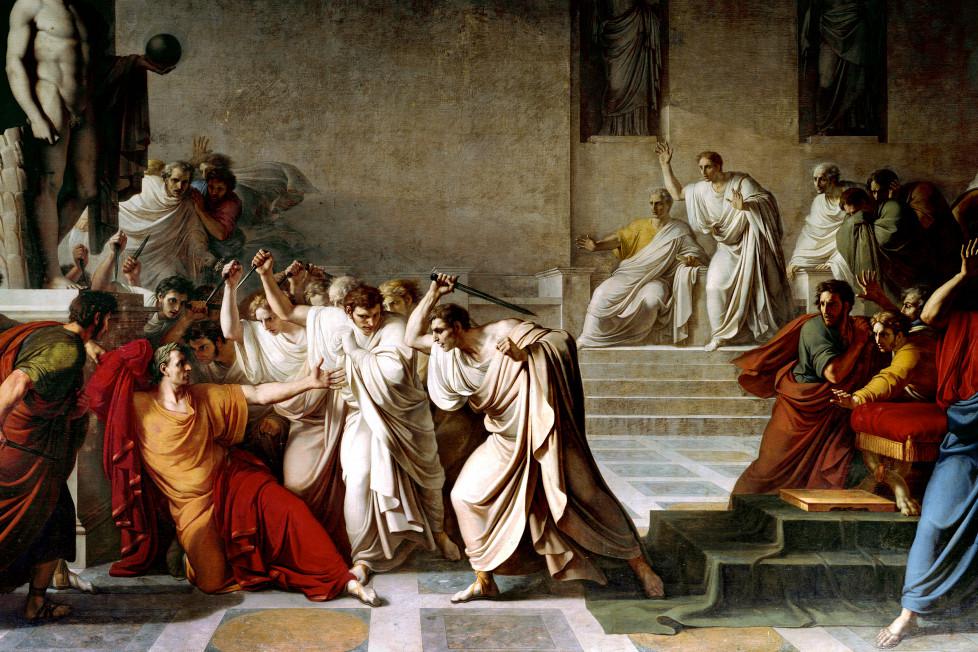The Antisemantics of the Word 'Jew'
by Pastor Mark Downey
Originally published in August 2017
Scripture Reading: Revelation 2:9
We hear a lot about anti-Semitism, which is a misnomer in its usage, but we don’t hear anything about anti-semanticism. Semitism comes from Semite and Semite comes from Shem, the son of Noah. We are Semites carrying our genetic seedline from Adam to Christ to the present day racially pure Israelite. I thought I had invented this new term. Semantics is the study of the meaning of words. If something is ‘anti’, it is against or contrary to something and is replaced with another meaning. Such is the case with the little four letter word ‘jews’. But, I was wrong; “anti-semantics” is online and cleverly rubbing next to the fish scales of “anti-antisemitism” in the fishy-slimy Urban Dictionary. It says, “Being against the arguing of meanings or definitions of words”. And then gives an example: "Look, I just don't care if the Holocaust refers specifically to the murder of the Ashkenazi Jews or if it can be used more broadly to the Nazi's persecution of other minorities!" Who would've thunk? Of all the myriad of examples, they pick the jews. In other words, it doesn't make any difference to them if a word has been adulterated for nefarious purposes. If you google “antisemantics”, this article doesn't show until page 3 and before that it's 2 pages of whining jews. The misnomer must be defended at all costs by the jews.

 Et tu, Brute?” from Julius Caesar by William Shakespeare. Just seconds before the assassination of the Roman emperor and being stabbed to death, Caesar sees one of the young Senators with knife in hand and exclaims “you also?” Imagine the last words out of your mouth is the surprising question to someone you thought was a loyal friend, but instead your executioner. To live by the sword is to die by the sword has become a common refrain for pacifism, but Jesus' admonition to Peter lobbing off the ear of the high priest's SWAT team member was not anti-sword; it was protecting Peter from being arrested himself, even though Peter was just trying to protect his Master. After Jesus was betrayed by Judas, the cops moved in to make the arrest. In hindsight, Peter should have aimed his sword at Judas, but this was a perfect moment of predestination as Jesus told him, “Am I not to drink the cup that the Father has given me?" John 18:11. The metaphor of a cup often signifies a measure of divine affliction, possibly derived from the custom of some nations putting someone to death with a cup of poison. Jesus had come to die as a sacrifice for sin and betrayal was a necessary ingredient to teach us many lessons which we'll explore today.
Et tu, Brute?” from Julius Caesar by William Shakespeare. Just seconds before the assassination of the Roman emperor and being stabbed to death, Caesar sees one of the young Senators with knife in hand and exclaims “you also?” Imagine the last words out of your mouth is the surprising question to someone you thought was a loyal friend, but instead your executioner. To live by the sword is to die by the sword has become a common refrain for pacifism, but Jesus' admonition to Peter lobbing off the ear of the high priest's SWAT team member was not anti-sword; it was protecting Peter from being arrested himself, even though Peter was just trying to protect his Master. After Jesus was betrayed by Judas, the cops moved in to make the arrest. In hindsight, Peter should have aimed his sword at Judas, but this was a perfect moment of predestination as Jesus told him, “Am I not to drink the cup that the Father has given me?" John 18:11. The metaphor of a cup often signifies a measure of divine affliction, possibly derived from the custom of some nations putting someone to death with a cup of poison. Jesus had come to die as a sacrifice for sin and betrayal was a necessary ingredient to teach us many lessons which we'll explore today.










